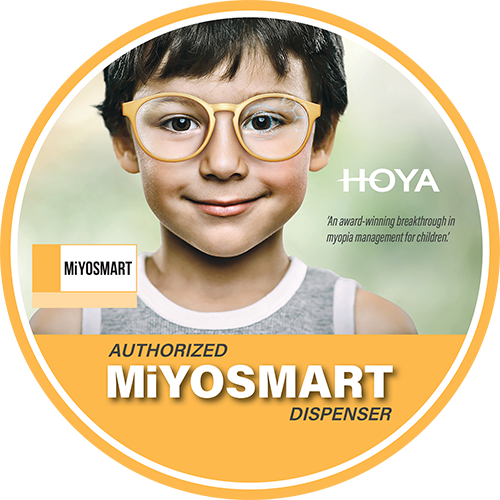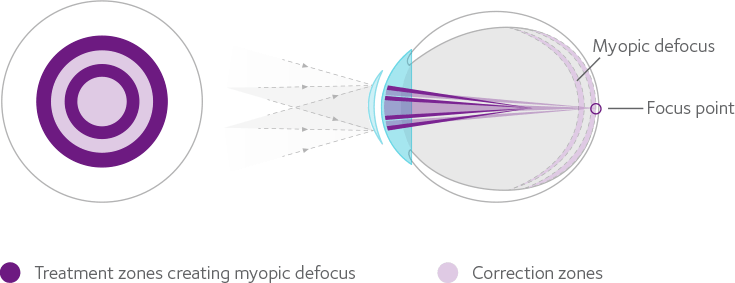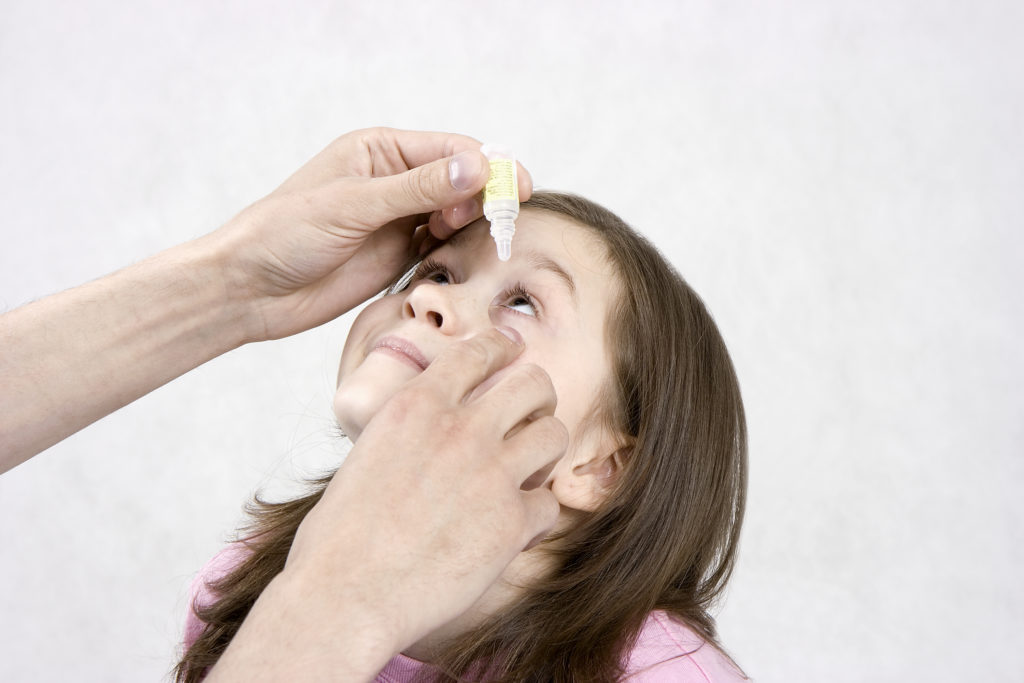
Myopia (also known as nearsightedness) is becoming increasingly common in children. Unfortunately, childhood cases of myopia often become more severe as children age. Without treatment, even a relatively mild case of myopia in childhood could evolve into a severe case by the time your child reaches adulthood. Severe myopia can result in the need for thick glasses, but also increase the chances of eye disease.
Myopia control or myopia management therapy is a type your child’s eyes and is designed to slow down the progression of myopia. Early intervention is crucial to preserving your child’s distance vision and keeping their prescription from increasing.
Our doctors have been providing myopia control treatments for many years.
Myopia control therapy works by reducing the amount the eye grows. This can done either with specially designed glasses, contact lenses or atropine eye drops.
Ortho-K lenses are a special type of rigid contact lens. They are designed to be worn overnight, and will gently reshape your child’s cornea as he or she sleeps. Over time this reshaping will gradually correct your child’s myopia. In the morning your child removes the lenses, and their corneas will maintain their new shape throughout the day, letting your child see clearly without having to wear glasses.
Miyosmart myopia control glasses work by using tiny islands of plus in the outer part of the glasses lens. The change in power in the outer lens sends a signal to the back of the eye to reduce its growth.

The MiSight myopia control contact lens reduces myopia progression by using a dual focus design. The changes in power allow blur to the periphery of the back of the eye to reduce eye growth.
Multifocal contact lenses can be used off-label for myopia control treatment. The bifocal part of the lens also sends a signal to the back of the eye to reduce its growth.

A low dose of atropine treatment is shown to slow the progression of myopia,and is often used in conjunction with other methods of myopia control. The low dose concentration allows clear vision and does not measurably reduce the child’s ability to focus.

We are proud to deliver industry-leading eye care to patients of all ages.
MiyoSmart is a spectacle lens design that uses D.I.M.S. technology for myopia control which was developed by Hoya in partnership with The Hong Kong Polytechnic University. In 2018, the MiyoSmart lens with D.I.M.S. technology was awarded the prestigious Grand Prize, Grand Award and Gold Medal at the 46th International Exhibition of Inventions of Geneva, Switzerland.
D.I.M.S stands for Defocus Incorporated Multiple Segments. It is the basis of Hoya’s myopia controllenses, known as MiyoSmart. The lens is comprised of a central optical zone for correcting refractiveerror and multiple defocus segments evenly surrounding the central zone (extending to the mid-periphery) of the lens to control myopia progression. This provides clear vision and myopic defocussimultaneously at all viewing distances.
The lens makes use of the natural homeostatic mechanism known as “emmetropisation”, whereby the eyeball adapts and shapes to receive focused images as it does for normal vision. Creating a myopic defocus (bringing rays in front of the retina) as with MiyoSmart lenses, prevents eyeball (axial length) elongation which is linked to myopia progression.
MiyoSmart is a safe and non-invasive option for slowing myopia progression. The wearer receives correction of his/her refractive error while his/her myopic progression is slowed down. MiyoSmart also allows the wearer to move around with ease, as the lenses are impact-resistant. The lens is aesthetically pleasing with its smooth surface and near-identical appearance to single vision lenses. A clinical study concluded that MiyoSmart with DIMS Technology had myopia progression reduced by an average of 60%.
Yes. Beyond correcting myopic refractive error, a two-year clinical trial started in 2014 involving 160 children aged 8-13, showed that MiyoSmart with D.I.M.S. (Defocus Incorporated Multiple Segments) technology works to curb myopic progression by up to 59%2. The results of the trial also showed that the children using the MiyoSmart lens had less axial elongation by up to 60% as compared to those wearing single vision lenses.